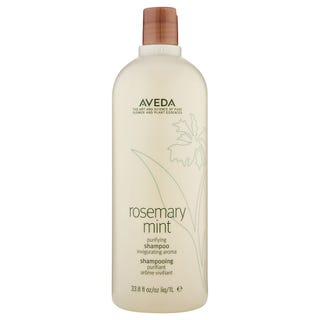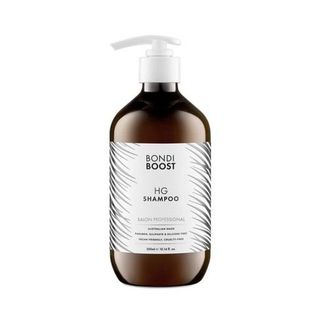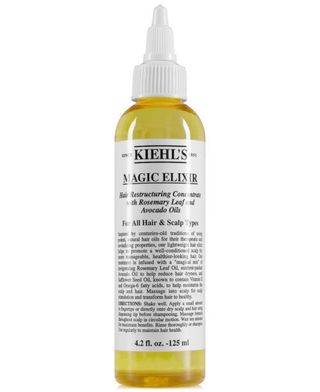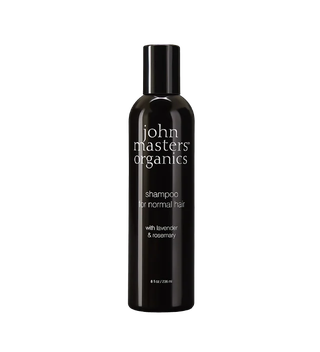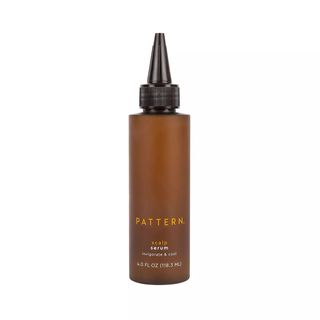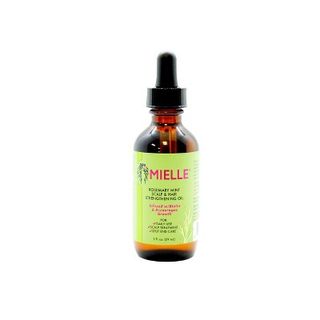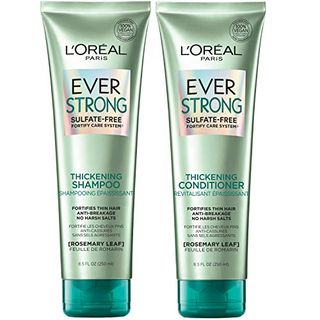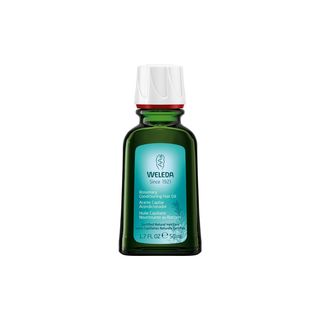Products You May Like
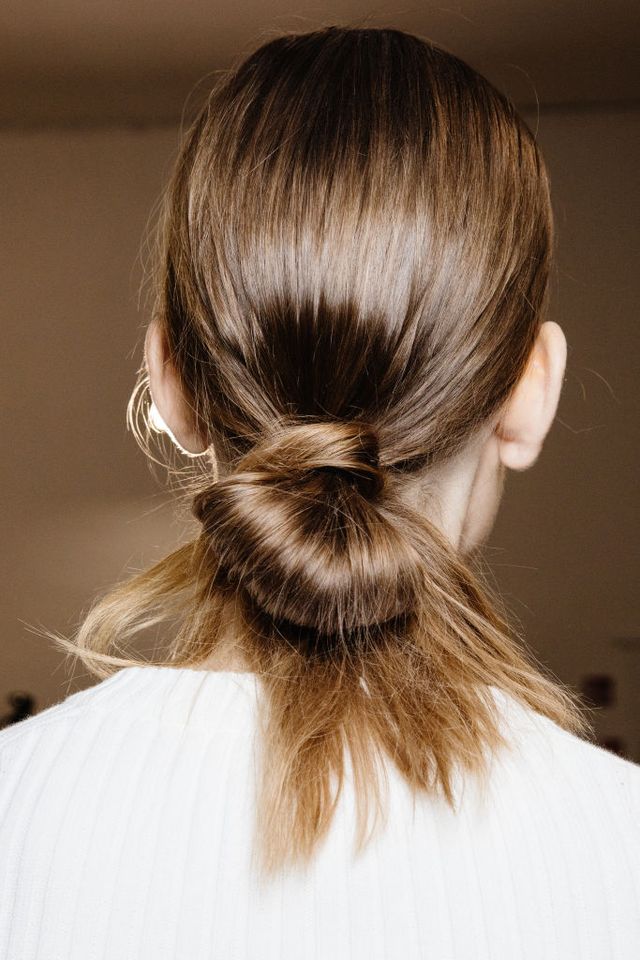
Rosdiana CiaravoloGetty Images
Of all the oils available for moisturizing skin and hair, rosemary oil may not be the first to come to mind. Although, it’s quite versatile. In addition to its aromatherapy and food seasoning capabilities, rosemary oil for hair also has quite a few damage restoration benefits.
Leave it to TikTok and Instagram to hype up its greatness even more—with claims that the oil can help stimulate hair growth. But is it true? We turned to the experts for the facts on using rosemary oil for hair.
What is rosemary oil?
First things first. Native to the Mediterranean region, rosemary oil is “a pale liquid oil from the rosemary plant which has an herbaceous aroma,” says cosmetic chemist Ginger King. “It’s often used in perfumes, skincare, and haircare as an antioxidant, anti-inflammatory, and antimicrobial ingredient.”
How can rosemary oil benefit the hair?
So, can rosemary oil help with hair growth? Experts say yes. “The rosemary plant contains carnosic acid which is known to heal nerve damage, tissue damage, and improve cellular turnover,” says Marnie Nussbaum, MD, FAAD, a board-certified dermatologist. “Therefore, it encourages nerve growth and improves blood circulation. The reason blood circulation is so important to hair growth is that without a proper blood supply, the follicles do not get the nutrients they need to grow the hair and they can die off.”
“There is one study that compared [rosemary oil] specifically to minoxidil (aka Rogaine off the shelf) and the finding is that the results appeared similar after six months,” says King. The majority of those who used rosemary oil also had less itchy scalps. “Because it’s antimicrobial, it potentially can reduce the occurrence of flakes on the scalp.”
“The rosemary plant in essential oil form is known to boast anti-inflammatory properties,” says Ope Ofodile, MD, MPH, a board-certified cosmetic and medical dermatologist at Dermatology and Surgery Specialists of North Atlanta. “This would be especially beneficial to help soothe distressed scalps.”
But not all hair will magically transform into Rapunzel-length upon using rosemary oil as it depends on the person’s reaction to it. Also, be prepared to play the waiting game if longer hair is your goal. King says, “There is limited study to prove its effect but it takes more than six months [of use] to see results.”
Who can use rosemary oil?
“Rosemary essential oil can be used on any hair type because the benefits target the hair follicle, not the hair strand,” says hairstylist Matt Newman. “It is safe to use on color-treated hair, especially because its main use should be directly on the scalp.”
If you have sensitive skin and are unsure how your scalp skin may react, talk to your dermatologist first about integrating the oil into your routine. Newman recommends doing a small patch test first and waiting 24 hours to see if any irritation occurs. “Also, when applying to the scalp, tilt your head backward to avoid any oils dripping into your eyes.”
Also, “There is no data regarding use in pregnancy or breastfeeding, therefore I would avoid it if possible,” advises Dr. Nussbaum.
How does rosemary oil compare, if at all, to other oils?
Newman notes that what makes rosemary essential oil different from most carrier oils used in hair care is its hair follicle health benefits. Hairstylist Cheryl Bergamy agrees, “Unlike other oils (like tea tree and peppermint) that produce hair growth, rosemary oil strengthens and promotes circulation for thirsty hair follicles that are starving of its blood supply and leading to hair loss.” One caveat: “It must be used more sparingly than carrier oils because overexposure can be irritating to the skin,” says Newman.
What are the downsides to using rosemary oil for hair?
The physical weight of the oil could interfere with your style. Newman says that for people with thin or fine hair or a sparse density of hair, the oils can make the hair look greasy and weighed down. “If this is the case for you, try using the product as a pre-shampoo treatment reserved for days when you will be doing a clarifying wash to your hair.”
How can I use rosemary oil for hair?
Mix it with a carrier oil. “You can start by using rosemary essential oil one to two times per week and titrate use upwards to daily as tolerated,” says Dr. Nussbaum. “Only use five drops of it, add it to a carrier oil like coconut or jojoba oil and massage into the scalp for five to ten minutes, and rinse.” Diluting pure rosemary oil helps reduce the potency and, therefore, decreases irritation on the skin.
Blend into shampoo or conditioner. Bergamy suggests adding it to your shampoo or conditioner to get the benefits while washing your hair. Just be sure to thoroughly wash your hair to get the product out well.
Use rosemary oil products. Alternatively, instead of playing scientist and adding rosemary essential oil to other products, you can use ones that already include the ingredient.
On that note, read on for the best rosemary oil products for hair.
This content is created and maintained by a third party, and imported onto this page to help users provide their email addresses. You may be able to find more information about this and similar content at piano.io

